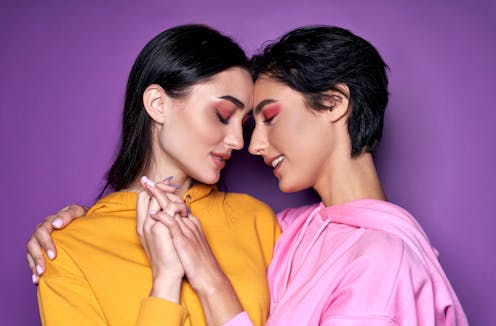love in the time of millennials and Generation Z
- Written by Elizabeth Reid Boyd, Senior Lecturer School of Arts and Humanities, Edith Cowan University

“That Love is all there is,” wrote Emily Dickinson,
Is all we know of Love;It is enough, the freight should beProportioned to the groove.
Does what we know of love still apply to Australian relationships today – particularly among millennials and Generation Z, whose partnerships and dating behaviours are charting new territories?
Review: Heartland: What is the future of modern love? by Jennifer Pinkerton (Allen & Unwin).

















